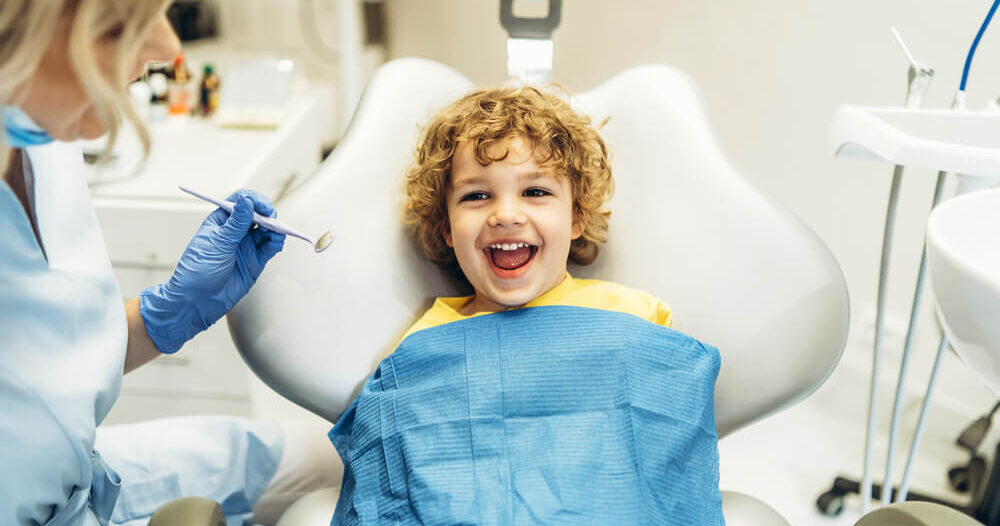How often should you take your child to the dentist?

Ideally, you should take your child for a dental check-up every six months.
Every parent wants their child to enjoy optimal health. An important part of this is taking care of your child’s teeth from an early age. In fact, you can start to take care of your child’s oral health before their first teeth have even erupted. Habits like cleaning your baby’s gums and tongue can reduce their risk of tooth decay at a later stage. And when it comes to dental check-ups, it’s advisable that you start early. Read on to find out how often your child should see the dentist and when you can begin with routine visits…
When can you take your child to the dentist?
When it comes to your child’s dental care, the earlier you start, the better. It is advisable that you take your little one for their first check-up when their first tooth has erupted, or at least by their first birthday. Taking proper care of your child’s baby teeth will set them up for success when their permanent teeth develop in the future. Early dental appointments are a great opportunity for your dentist to check your child’s general oral hygiene. Your dentist can remove any plaque that may have built up and guide you on how to best clean your child’s teeth and gums.
How often should your child see the dentist?
Once your child has been in for their first dental appointment, it is usually recommended that you schedule check-ups every six months. Seeing the dentist regularly is one of the best ways to prevent issues from developing, as any potential problems can be identified quickly and resolved before they become more serious.
Taking your child for regular dental check-ups is also a great way to reduce anxiety surrounding the experience. By making it a routine, your child is more likely to feel comfortable and calm about visiting the dentist regularly.
What are the signs of tooth decay in children?
Unfortunately, tooth decay is one of the most common oral health issues affecting children. Many children have cavities in their baby teeth, and the problem is often caused by a combination of poor diet and inadequate oral hygiene.
Although tooth decay often goes unnoticed, there are a few potential warning signs you can look out for. These include toothache, sensitivity, bad breath, bleeding, and swollen gums. It also includes discolouration of the teeth, such as black, white, or brown spots. If you notice any of these signs, it is advisable that you arrange a check-up with your dentist. Cavities should be treated as soon as possible to prevent problems at a later stage.
Once your child’s permanent molars have erupted, you might consider having dental sealants placed. This preventative treatment can be very helpful in preventing tooth decay in hard-to-reach areas of the mouth as they stop food particles and bacteria from getting stuck in the pits and grooves on the chewing surfaces of the back teeth.
How can we help?
At My Dental Care @ West End, we offer a comprehensive range of dental treatments, including children’s dentistry. We want our youngest patients to feel good about visiting the dentist, and we love to teach them how to take proper care of their teeth.
We encourage parents to bring their children in for their first dental check-up reasonably soon after the eruption of their first tooth — usually between six months and one year old.
To find out more about our children’s dentistry services and how you can care for your child’s oral health, please have a look here.
To see the full list of treatments we provide at our practice in Brisbane, please have a look here. To book an appointment, please contact us here or give us a call at (07) 3846 2548.
Payment Enquiry
We're here to help! Contact us to learn more about fees, payment options, and health fund claims.


